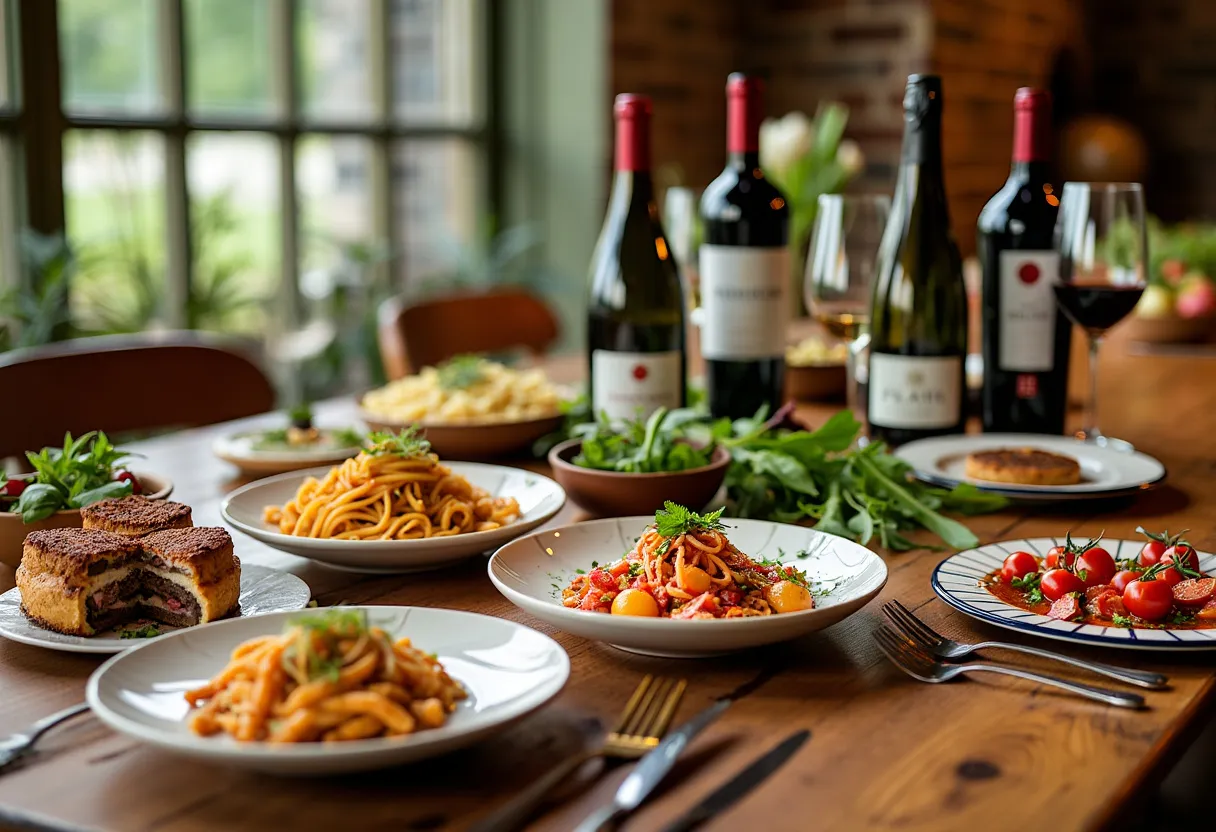
Mastering the Art of Italian Wine Pairing: An In-Depth Guide for Home Chefs
Published on 9/21/2024
Lucia Rossi • 9/21/2024
Welcome, fellow culinary enthusiasts, to the exciting world of Italian wine pairing. Here in beautiful Florence, I've spent countless hours perfecting the delicate balance between food and wine at a Michelin-starred restaurant. Today, I'm delighted to share with you the secrets I've gathered over years of experience, infusing both professional and personal insights into crafting an unforgettable dining experience at home.
The Basics of Wine Pairing
Wine pairing is an art form that brings harmony to a meal. When done correctly, the wine complements the dish, enhancing the flavors and creating a total sensory experience. Here are some fundamental principles:
- Matching Intensity: Bold dishes pair well with robust wines, while delicate dishes suit lighter wines.
- Flavor Intersection: Pair wines with similar flavor notes to the dish.
- Regional Pairing: Dishes and wines from the same region often complement each other.
- Textural Harmony: Consider the texture of both the food and the wine for a pleasing mouthfeel.
Exploring Italian Wine Regions
Italy's rich, diverse wine regions offer something for every dish and occasion. Let's tour some key regions, exploring their unique offerings.
Tuscany
Tuscany is renowned for its full-bodied red wines, particularly Chianti and Brunello di Montalcino. These wines pair beautifully with meaty, tomato-based dishes like Bistecca Alla Fiorentina and Pappardelle al Cinghiale.
Piedmont
Piedmont, home to the majestic Barolo and Barbaresco, offers wines that excel with savory dishes featuring truffles and risotto. The region also produces the refreshing Moscato d'Asti, perfect for a sweet finish.
Veneto
In Veneto, the sparkling Prosecco is a versatile choice, ideal for an aperitif or paired with light appetizers such as bruschetta. Don't miss Amarone della Valpolicella for a rich accompaniment to hearty dishes like osso buco.
The Menu Method
Designing a balanced menu helps in selecting the ideal wine pairings. Consider courses that progressively build in flavor intensity:
- Start with a light appetizer: Pair with a crisp white wine like Pinot Grigio or a fresh Prosecco.
- A smooth pasta course: Complement with a medium-bodied red such as Merlot.
- Main course of roasted meats: Opt for a bold Cabernet Sauvignon.
- Conclude with a decadent dessert: Match with a sweet Vin Santo.
Tips from My Italian Kitchen
Here are some personal tips to refine your wine pairing skills:
- Taste As You Cook: Keep a glass nearby to sample with small dish combinations.
- Consider the Season: Lighter wines suit spring and summer, while fuller options are comforting in the colder months.
- Experiment with Pairing: Don't hesitate to try unconventional pairings; some surprises can be delightful.
Conclusion
Whether you're hosting a dinner party or enjoying a quiet meal at home, mastering Italian wine pairing elevates your culinary experience. Remember, the best pairings balance flavors, textures, and aromas to create a harmonious event. Keep exploring, keep tasting, and most importantly, have fun savoring the rich tapestry that is Italian cuisine paired with its wonderful wines.
If you're interested in further exploring wine pairing techniques, you can visit our blog for more tips and resources. Buon appetito!
Lucia Rossi
Chef Sommelier and Culinary Writer | I've been cooking
Lucia grew up in a family that deeply valued food in Naples, Italy, where the culture of slow cooking and enjoying meals together shaped her culinary philosophy. She spent her early years learning to make pasta and traditional Neapolitan dishes with her mother and grandmother. After studying culinary arts in Paris, Lucia became fascinated by the relationship between food and wine. Now living in Florence, she works as a chef sommelier in a Michelin-starred restaurant, pairing Italian cuisine with fine wines. Lucia is also a published food writer, specializing in the art of wine pairing.